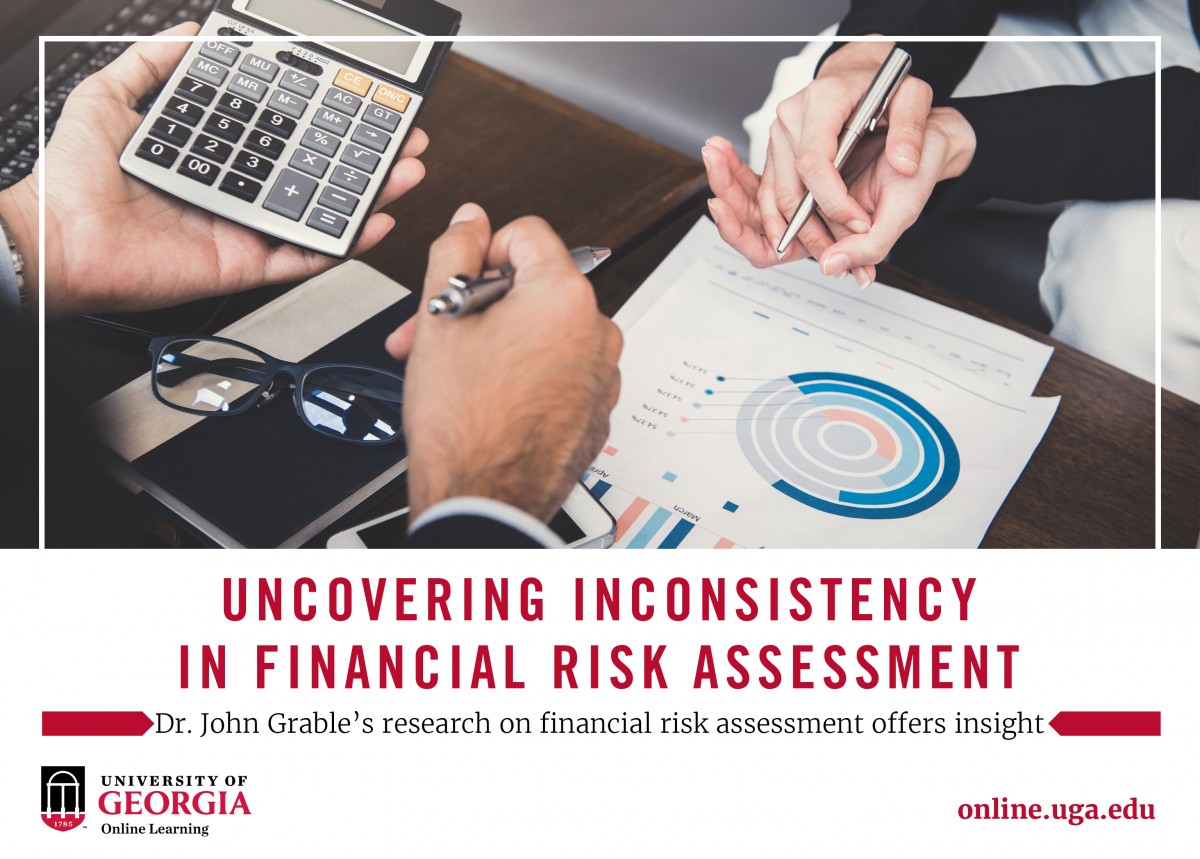Uncovering Inconsistency in Financial Risk Assessment
Uncovering Inconsistency in Financial Risk Assessment
Our economy is ever-changing, and you never know what your financial future may hold. When it comes to risk tolerance and profiling, consistency is key. Dr. John Grable, an online M.S. in Financial Planning professor, has found through his research that when it comes to assessing financial risk, inconsistencies are common and overcoming personal bias is a huge obstacle.

The professor’s research, cited in the Wall Street Journal article, Knowing If You Can Stomach the Next Big Market Swing, uncovers the fact that financial planners are treating risk tolerance inconsistently. Additionally, risk quizzes are not always accurate, especially if you have different financial advisors using different quizzes.
In his research, Grable and his research partner, Amy Hubble, presented financial advisers with descriptions of five clients including: age, career, income, net worth, housing situation and long-term goals, as well as their scores from a risk-tolerance quiz.
For one client, various advisers recommended portfolios ranging from a risky 85% in stocks to a timid 100% in bonds. They also suggested wildly divergent holdings for clients who had identical circumstances but slightly different risk scores.
They found that even very experienced financial advisers are not using a standard procedure but are instead following their own judgment when it comes to assessing risk, and this is typical within the profession.
Advisors may put one investor into a risky portfolio and another into a much safer one based on bias and other outside factors, and this is not easy to justify if they both scored the same on a risk quiz. This goes to show that each of these risk quizzes are focused on different things, including biases, and are not effective in assessing risk.
“Clients have biases, but we advisers need to be cognizant of our own biases because we are also human,” says Amy Hubble.
To remove bias from risk assessment situations, it is necessary to focus on risk capacity rather than risk tolerance. Some clients may be far too eager to risk money they cannot afford to lose; others fear taking any risk, but lack the income or assets to reach their goals unless they do.
As the client it’s important to be aware that these inconsistencies and bias exist among financial advisors. It is in your best interest to visit multiple advisors, weigh your options, and find the right fit for you and your family.
If the field of financial planning is one that you are interested in, you can learn more about how to commit to financial success and superior money management in UGA’s online Master of Financial Planning. Now accepting applications for Spring 2020 through Nov.15 and Fall 2020 through July 1.
